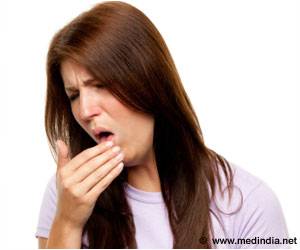“Our findings strongly suggest that psilocybin therapy is a promising means of treating alcohol use disorder, a complex disease that has proven notoriously difficult to manage,” says study senior author and psychiatrist Michael Bogenschutz, MD, director of the NYU Langone Center for Psychedelic Medicine.
The U.S. Centers for Disease Control and Prevention reports that excessive alcohol use kills roughly 95,000 Americans every year, often due to binge drinking or liver disease. It is also linked to enormous economic and workplace losses, injury accidents, and impaired learning, memory, and mental health, says Bogenschutz, also a professor in the Department of Psychiatry at NYU Langone Health. Current methods to prevent excessive alcohol use and dependency include psychological counseling, supervised detoxification programs, and certain drug regimens that dampen cravings.
Advertisement
According to study investigators, previous research had already identified psilocybin treatment as an effective means of alleviating anxiety and depression in people with the most severe forms of cancer. And earlier research by Bogenschutz and others suggested that psilocybin could serve as a potential therapy for alcohol use disorder and other addictions.
The new study, publishing in the journal JAMA Psychiatry, is the first placebo-controlled trial to explore psilocybin as a treatment for excessive alcohol consumption, according to the study authors.
For the investigation, the research team recruited men and women who were diagnosed with alcohol dependence based on standard definitions and consumed on average seven drinks on days when they drank. Forty-eight patients received at least one dose and up to three doses of psilocybin, and 45 patients received the antihistamine placebo.
All received up to 12 psychotherapy sessions. These took place both before and after the drug treatments. Afterwards, the participants were asked to report the percentage of heavy drinking days they experienced during weeks 5 to 36 of the study. They also provided hair and fingernail samples to confirm that they had not been drinking. All participants were then offered a third session of psilocybin to ensure that those who previously received a placebo had the chance to be treated with the psychedelic drug.
“As research into psychedelic treatment grows, we find more possible applications for mental health conditions,” says Bogenschutz.
Bogenschutz says the research team next plans to conduct a larger, multicenter trial under an FDA IND sponsored by B.More Inc.
He cautions that more work needs to be done to document psilocybin’s effects and to clarify appropriate dosing before the drug is ready for widespread clinical use. He notes that researchers have started such trials.
Psilocybin is a naturally occurring compound derived from fungi with mind-altering qualities similar to those of LSD and mescaline. Most study participants experience profound alterations in perception, emotions, and sense of self, often including experiences which are felt to be of great personal and spiritual significance. Because the drug raises blood pressure and heart rate and can cause incapacitating and sometimes overwhelming psychological effects, researchers caution that it should only be used in carefully controlled settings and in conjunction with psychological evaluation and preparation.
Source: Eurekalert



